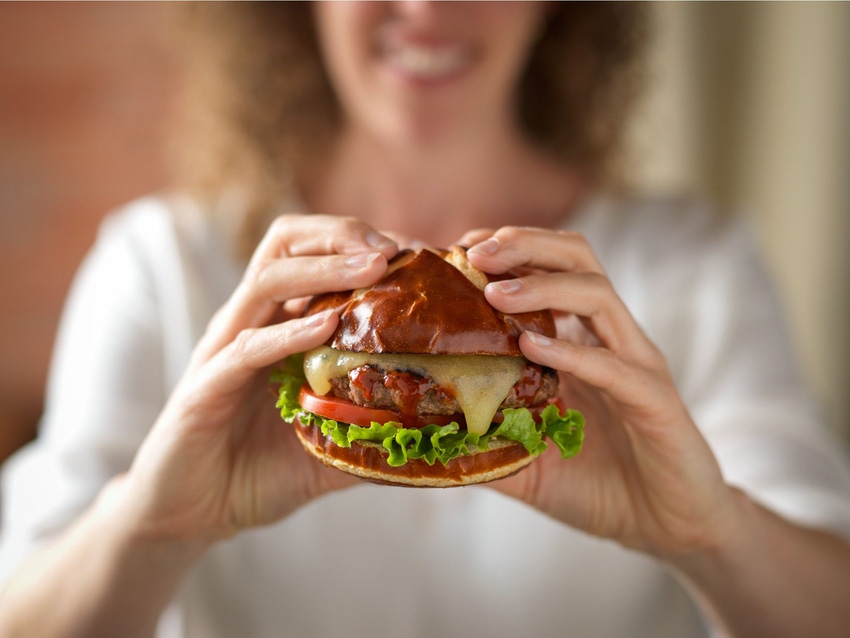How NYC’s Meatless Mondays campaign is hurting poor communities
In an attempt to curtail climate change, New York City is hurting its most vulnerable citizens — the poor, homeless and the hungry.
May 3, 2019

The Big Apple is making headlines with recent moves to curb climate change. New York City recently unveiled its OneNYC 2050 plan, which aims to reduce emissions by 30% and address issues of economic inequalities and health.
The plan aims to reduce emissions by 30% by 2030. The proposal includes a mandate that large buildings cut emissions or face penalties with a goal of converting government operations to 100% clean electricity.
Additionally, New York City Mayor Bill De Blasio has announced new policies that would limit the city’s purchases of hot dogs.
“The plan is to phase out completely purchases of processed meats by agencies and reduce how much agencies spend on beef by 50%,” a city spokesman, Phil Ortiz, told FactCheck.org in an email. “This would affect, for example, hamburgers in NYC public school lunches. It would not impact hot dogs at baseball games, street vendors, restaurants, etc.”
According to a story published on iHeart.com, “The plan will cut purchases of red meat by 50% in its city-controlled facilities such as hospitals, schools, and correctional facilities.”
What’s more, De Blasio announced that Meatless Mondays will be initiated in all public schools in the district.
As I type this, I’m at my family’s cattle ranch in the quiet South Dakota countryside. The skies are clear. There are pastures as far as the eye can see. And there’s nary a smog cloud looming above.
So I’m scratching my head as I contemplate why politicians in New York City, a place that is literally polluted with smog from urbanization, are blaming climate change on cattle? Is it easier to pass the buck off on animal agriculture verses looking squarely at truly the largest contributors of greenhouse gas emissions — transportation and electricity?
While the BEEF team has repeatedly addressed the erroneous claims that beef production is a major contributor to climate change, let’s look at this issue from another angle.
De Blasio and New York City officials may be earnestly trying to address emissions; however, they’re going about it the wrong way, and consequently are hurting the very people they represent. Their approach is elitist, ignorant and totally ignores the true poverty issues facing so many in the Big Apple.
Diane Sullivan, an anti-poverty and affordable food advocate, recently addressed how the Meatless Monday initiatives are causing dire consequences for the city’s most vulnerable.
In a blog post for Animal Alliance, Sullivan writes, “As a mother whose children have experienced hunger, I am concerned about the consequences this policy will have on the city’s most vulnerable students.
“In a city where 1.2 million residents face hunger every year and 339,000 of its students rely upon soup kitchens and food pantries that struggle to keep up with rising demand, this is a recipe for disaster for students from low income households.
“During these times and beyond, school meals have provided necessary nutrition to my children when my poverty wages could not. I have been a SNAP recipient and have checked my dignity at the door of food pantries, so that I could feed my children. I’ve then gone with a pocket full of change to purchase the animal protein the food pantry was unable to provide” Sullivan said.
“I am not objecting to vegetarian options for students who, or whose parents, prefer them. I am opposed to removing such a rich source of protein from the diets of children who are not regularly otherwise receiving those critical nutrients and would prefer them.
“Mitchell Katz, MD, CEO of NYC Health and Hospitals, lauds the move as creating ‘an option of a healthier meal choice.’ The irony is that this Meatless Mondays policy is indeed removing healthy meal choices from school cafeterias where vegetarian options often always exist.
“This is part of what I call food gentrification, where those with money and satisfied choices are dictating options for those with neither. Those most impacted by those decisions made by those in power are not often fully informed, invited to the table or even considered in these discussions.
“Perhaps if Mayor de Blasio is so inclined to use his platform to address climate change, he’ll lessen the number of trips on airplanes which he and his wife take. Perhaps next time, they’ll reconsider the environmental impact of bringing along the photographer.”
Read the entire blog post by clicking here.
If I’ve said it once, I’ll say it 1,000 times — consumer choice is great. If you want to pay a premium for grass-fed, all-natural, GMO-free, organic, locally-raised, etc., please do so!
However, when you dictate specific ideologies and premium-based products on the everyday American whose primary goals are to buy safe, nourishing groceries at affordable prices, your privilege and elitism are hurting other people.
It’s time to bring commonsense to the discussions on sustainability, emissions, climate change and environmental impacts. The root cause is being ignored in favor of blaming the cows.
Frankly, it’s getting a bit ridiculous, and it’s time for the nation’s elite to stop imposing their ivory tower beliefs on the rest of the nation. America needs a wakeup call before we continue to hurt the most vulnerable and impoverished people in our communities.
The opinions of Amanda Radke are not necessarily those of beefmagazine.com or Farm Progress.
About the Author(s)
You May Also Like




.png?width=300&auto=webp&quality=80&disable=upscale)
